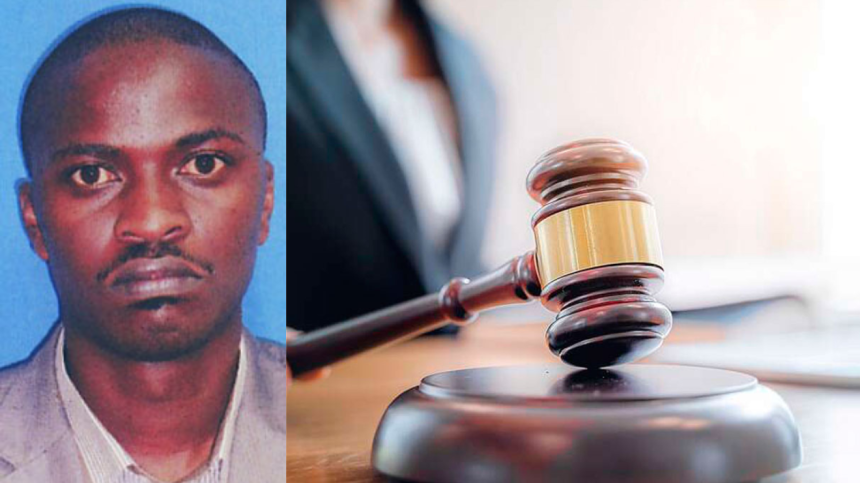A Nairobi court has declined to unfreeze millions of shillings in a bank account despite the owner claiming the amount is supposed to pay for his dowry.
The Sh21 million belonging to a Nairobi-based accountant was frozen after the Ethics and Anti-corruption (EACC) body successfully obtained a court order.
The EACC believes the money could be proceeds from corruption activities, including money laundering.
The man, a government employee, was simultaneously suspended from his job.
Refusing to vacate orders freezing Daniel Wambua’s three bank accounts, anti-corruption high court judge Justice Nixon Sifuna said the plea to unfreeze the accounts is misconceived and unmeritorious.
Mr Wambua, an employee of the Kenya Rural Roads Authority (KeRRA) has moved to court seeking orders to vacate orders granted to the Ethics and Anti-Corruption Commission (EACC) freezing his three bank accounts claiming the money therein was acquired corruptly.
Through lawyer Danstan Omari, Mr Wambua urged the court to unfreeze the accounts to enable him to pay the dowry for his wife.
But Justice Sifuna dismissed the application by Mr Wambua saying “after looking at the submissions and arguments from respective parties, it was safe for the money in three bank accounts to remain frozen.”
The accounts were frozen in August 2023.
The judge said Mr Wambua, who claimed that the money was fundraised for his dowry payment, could still access the money if the investigations by the Ethics and Anti-Corruption Commission (EACC) cleared him or the court later found that it was not tainted.
“The money is still in the bank account and will be available to the applicant (Wambua) once cleared,” the judge said.
Mr Wambua through his lawyer Danstan Omari had informed the court that one of the three bank accounts frozen is a fixed account holding Sh5 million, while one is his salary account and holds Sh264,707. A third bank account holds Sh15.1 million.
He said Mr Wambua made the deposits after holding fundraiser events that were to improve contributions towards the dowry payment.
The lawyer said Mr Wambua held four events before the main dowry ceremony and participants launched several online challenges before a goat-eating event, which happened on July 28.
Mr Omari said the first event was held on June 9, 2023, which was the official launch and the total amount collected was Sh917,000. He said the money was deposited into the account the following day.
The judge said the freeze will be in place on a temporary basis as the anti-graft body completes its investigation.
According to the judge, Wambua’s lawyer had submitted that was still accessing his bride and all was not lost for him.
“After the dowry ceremony, some people were involved in an accident and we had to attend to them on August 7-8, 2023, thus impossible to pay the dowry on that day. On August 9, 2023, my accounts were frozen thus making it impossible for me to pay the dowry,” he said in an affidavit filed in court.
The anti-graft body, however, had opposed the unfreezing of the funds arguing that there was reasonable suspicion that the money was acquired through corrupt conduct by the accountant at the Kenya Rural Roads Authority (KeRRA).
The EACC told the court that Mr Wambua was relying on copies of screenshots from a WhatsApp group but has not explained or shown the connection between the group and the funds in the three bank accounts.
EACC said Mr Wambua earns a monthly salary of Sh56,000 but had made deposits of Sh1.78 million in three months, which is above what he earns in one year.
The EACC further submitted that they conducted a search at his home and recovered a total of Sh700,000 in cash. Half a million shillings had been hidden in his bedroom while Sh200,000 had been kept in a safe, which was carted away by investigators and was opened after he brought the key.
Further, the anti-graft body dismissed claims advanced by Mr Wambua that some of the proceeds were from farming activities.
“It is not too much to expect that a person operating a legitimate business in agricultural or horticultural produce would have records of the sales and payments, as well as income tax returns that show the amount of produce, to whom the sales are made, the profits, if any and tax paid thereon,” the EACC submitted.
A budget presented to the court showed that the official would spend a total of Sh20.2 million for the two-day ceremony.
The expenses include a dowry payment of Sh8.9 million, food, tents, chairs, photography, transport, and security that would gobble the rest.
The EACC maintains there was a systematic pattern of deposits of between Sh300,000 and Sh600,000 every month, mostly made by a man identified as James Kivuva, who is suspected to be a proxy having made a total of Sh1.9 million.
The funds were later transferred to different accounts, EACC submitted.
“That there is reasonable suspicion that the huge amounts received in several accounts of the respondent are monies that have been acquired through abuse of officer, bribes or misappropriation of public funds through his office,” EACC said.



